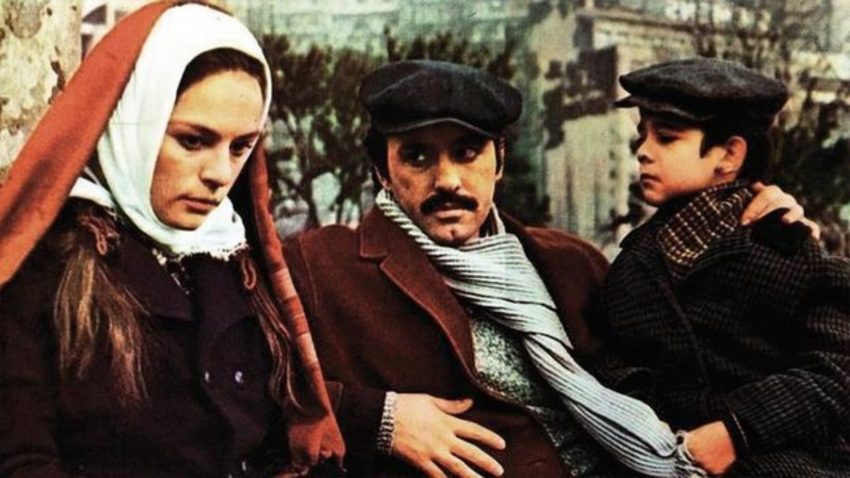magiccarouselsundays.com – Gelin (The Bride), a 1973 Turkish film directed by Lütfi Ö. Akad, is a poignant and powerful drama that unflinchingly portrays the plight of a young woman forced into an unwanted marriage. Set against the backdrop of rural Anatolia, the film explores themes of tradition, family pressure, female agency, and the devastating consequences of societal expectations. Gelin is not just a story about one woman’s struggle; it is a powerful commentary on the systemic oppression faced by women in patriarchal societies. This article delves into the narrative, themes, characters, and lasting impact of this emotionally resonant film.
Narrative: A Young Woman Trapped Between Tradition and Desire
The film tells the story of Meryem (Türkân Şoray), a young and vibrant woman living in a small Anatolian village. Meryem is deeply in love with a local man, but her family, driven by financial motivations and adherence to tradition, forces her into marriage with a much older and wealthy man from a distant city. Despite her desperate pleas and clear unhappiness, Meryem is powerless to resist the pressure from her family, particularly her domineering father and brothers.
Meryem is taken to Istanbul, a stark contrast to her rural upbringing, where she is expected to fulfill her role as a dutiful wife and daughter-in-law. However, she finds herself trapped in a loveless marriage, isolated and unhappy. Her husband, while not overtly abusive, is emotionally distant and unable to provide her with the love and companionship she craves. As Meryem struggles to adapt to her new life, she faces increasing pressure to conform to the expectations of her new family and the rigid social norms of her new environment. The narrative builds towards a tragic climax, highlighting the devastating consequences of forced marriage and the lack of agency afforded to women in such circumstances.
Themes: Exploring the Complexities of Female Oppression
Gelin explores several deeply relevant and disturbing themes:
- Forced Marriage and Lack of Female Agency: The film’s central theme is the devastating impact of forced marriage on women. Meryem’s story exemplifies the lack of control women often have over their own lives and destinies in patriarchal societies.
- Tradition vs. Modernity: The film contrasts the traditional values of rural Anatolia with the more modern urban setting of Istanbul. Meryem’s struggle to adapt to her new life highlights the tension between these two worlds and the challenges faced by women caught between them.
- Family Pressure and Social Expectations: The film powerfully portrays the immense pressure placed on women by their families and society to conform to traditional roles. Meryem’s family’s desire for financial gain outweighs their concern for her happiness, highlighting the destructive nature of such expectations.
- The Search for Freedom and Self-Determination: Despite her difficult circumstances, Meryem yearns for freedom and self-determination. Her quiet acts of resistance, however small, demonstrate her inner strength and her desire to control her own life.
Characters: Embodiments of Female Struggle and Societal Pressure
The characters in Gelin are compelling and embody different aspects of the themes explored in the film:
- Meryem (Türkân Şoray): Türkân Şoray delivers a powerful and heartbreaking performance as Meryem. She portrays the character’s vulnerability, resilience, and inner strength with remarkable depth and nuance.
- The Father and Brothers: Meryem’s father and brothers represent the oppressive forces of tradition and family pressure. Their focus on financial gain and adherence to social norms blinds them to Meryem’s suffering.
- The Husband: Meryem’s husband represents the emotional distance and lack of understanding that can exist within forced marriages.
Lasting Impact: A Catalyst for Social Awareness
Gelin had a significant impact on Turkish society, raising awareness about the issue of forced marriage and prompting discussions about women’s rights and societal expectations. The film’s powerful portrayal of Meryem’s suffering resonated with audiences and sparked a much-needed conversation about the need for change.
Conclusion: A Timeless and Heartbreaking Cry for Freedom
Gelin is more than just a film about a forced marriage; it is a timeless and heartbreaking cry for freedom and self-determination. Its powerful portrayal of female oppression and its sensitive exploration of human emotions have made it a significant work in Turkish cinema. The film’s enduring legacy lies in its ability to continue to provoke thought, spark dialogue, and remind us of the ongoing struggle for gender equality and the importance of respecting individual autonomy. It stands as a testament to the power of cinema to shed light on important social issues and to inspire change.

